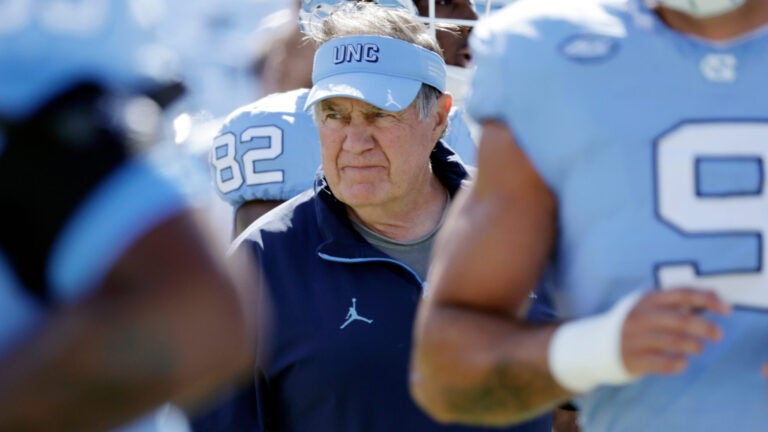UNC and the Belichick Buzz: Rumors of an Early Departure at Chapel Hill

UNC and the Belichick Buzz
Rumors are swirling around Chapel Hill as the University of North Carolina explores a potential exit strategy for coaching legend Bill Belichick. According to recent reports, sources close to the program suggest that Belichick’s tenure with the Tar Heels may be shorter than expected, with whispers of an early departure gaining traction. This development comes as a surprise to many, especially given Belichick’s storied NFL career and the initial excitement surrounding his arrival. The speculation has been fueled by cryptic statements from athletic department insiders and a noticeable shift in the program’s public messaging.
Unpacking the Rumors
While neither Belichick nor UNC officials have confirmed the rumors, the situation is drawing comparisons to other high-profile coaching departures where early exits followed behind-the-scenes tensions. Analysts point to possible clashes over program direction, recruiting philosophies, or even personality differences as contributing factors. Fans and commentators alike are left to wonder if this is simply a case of premature speculation or the beginning of a significant shakeup in Chapel Hill. If the rumors hold weight, the Tar Heels could be forced into an unexpected coaching search much sooner than anticipated, leaving the college football world watching closely.
About the People Mentioned
Bill Belichick
Bill Belichick is a highly accomplished American football coach, best known for his tenure as head coach of the New England Patriots in the National Football League (NFL). Beginning his NFL coaching career in 1975 as an assistant with the Baltimore Colts, he worked with several teams, including the Detroit Lions, Denver Broncos, and notably the New York Giants. As the Giants’ defensive coordinator starting in 1985, Belichick helped develop a dominant defense that contributed to two Super Bowl victories in 1986 and 1990. In 1991, Belichick became the head coach of the Cleveland Browns, where he coached for five seasons. After assistant coaching roles with the Patriots and New York Jets, he was briefly named Jets head coach in 2000 but resigned after one day. Soon after, he took over as head coach of the Patriots, beginning a transformative era. Under Belichick’s leadership from 2000 to 2023, the Patriots became one of the NFL’s most dominant franchises. The team won six Super Bowl championships (2002, 2004, 2005, 2015, 2017, and 2019), the most by any head coach in NFL history, with quarterback Tom Brady playing a key role in this success. Belichick earned three AP NFL Coach of the Year awards (2003, 2007, 2010) and set numerous records, including most playoff victories (31). The Patriots also made nine Super Bowl appearances and won 17 AFC East division titles during his tenure. Belichick is recognized for his strategic expertise, especially on defense, and his ability to adapt and rebuild championship teams over decades. After leaving the Patriots, he became the head football coach at the University of North Carolina, connecting with his family’s coaching legacy. His father, Steve Belichick, was a longtime assistant coach at the U.S. Naval Academy and the University of North Carolina, influencing Bill’s deep football knowledge from a young age[1][2][5][6][7].
About the Organizations Mentioned
University of North Carolina
The University of North Carolina (UNC) System is a premier public university network in the United States, anchored by its flagship campus at Chapel Hill. Chartered in 1789 and opening its doors in 1795, UNC-Chapel Hill holds the distinction of being the first public university in the country and the only one to award degrees in the 18th century. The UNC System now comprises 16 universities and the North Carolina School of Science and Mathematics, serving over 220,000 students and driving innovation in education, research, and public service. Historically, UNC-Chapel Hill was founded on the ideals of accessibility and academic excellence, with Revolutionary War officer William Richardson Davie recognized as its “Father.” The university weathered periods of closure, notably during Reconstruction, but rebounded under leaders like Kemp P. Battle. In 1931, the UNC System was consolidated, integrating institutions focused on agriculture, engineering, and women’s education. The system expanded further in 1971, bringing all public senior institutions under one umbrella. UNC is renowned for its research output, particularly in business, technology, and health sciences. The Chapel Hill campus is a major research hub, with strong ties to the Research Triangle—a global center for tech and biotech innovation. UNC’s business school and computer science programs are highly ranked, producing leaders in entrepreneurship and technology. The university also boasts a robust study-abroad program, with nearly a third of undergraduates gaining international experience. Today, UNC enrolls nearly 30,000 students at Chapel Hill alone and counts over 300,000 alumni, including Nobel laureates, Rhodes Scholars, and industry pioneers. Its commitment to innovation, affordability, and public service makes UNC a key player in shaping the future of business and technology in the U.S.



















